The Egyptian Blue Lotus flower (Nymphaea caerulea) has been revered for centuries, known for its deep cultural roots and unique properties. Ancient Egyptians considered Blue Lotus a sacred flower, often depicting it in art, temples, and religious ceremonies. Today, it remains popular among those interested in botanical extracts, herbal teas, and natural wellness products.
At Kratora, we provide premium Blue Lotus products, including whole flowers, powder, and extracts, for those who want to experience this historic botanical. In this guide, we’ll explore:
- What Blue Lotus is and its historical significance.
- How people have traditionally used it.
- The effects that users commonly report.
- How to incorporate Blue Lotus into teas, tinctures, and more.
Whether you’re new to Blue Lotus or looking for high-quality products, we’re here to provide insights and premium selections.
What Is Blue Lotus?
The Egyptian Blue Lotus (Nymphaea caerulea) is a water lily, not a true lotus, despite its name. Native to the Nile River region and parts of Asia, this vibrant blue flower has been celebrated for centuries for its distinct appearance and traditional uses.
Botanical Characteristics
- Scientific Name: Nymphaea caerulea
- Common Names: Egyptian Blue Lotus, Sacred Blue Lily, Blue Water Lily
- Native Regions: Egypt, India, Southeast Asia
- Plant Type: Aquatic flowering plant
The Blue Lotus flower blooms on calm bodies of water, opening in the morning and closing at night. Its delicate petals and golden center have made it a symbol of spiritual awakening and deep relaxation in various cultures.
How Is Blue Lotus Used Today?
People continue to use Blue Lotus in a variety of ways, including:
- Brewing it into herbal tea – A traditional method that allows users to enjoy its natural properties.
- Using Blue Lotus extracts and tinctures – Concentrated forms that provide a more potent experience.
- Burning Blue Lotus as incense – Often used in meditation and relaxation practices.
- Adding it to herbal blends – Some mix Blue Lotus with other botanicals for a unique experience.
At Kratora, we offer high-quality Blue Lotus products in multiple forms, including:
- Blue Lotus Flowers – Ideal for making authentic Blue Lotus tea or herbal blends.
- Blue Lotus Powder – A versatile option for teas, capsules, or incense.
- 50:1 Blue Lotus Extract – A concentrated form for those seeking stronger effects.
Whether you prefer the traditional experience of brewing Blue Lotus tea or want to explore its extracts and powders, our selection ensures freshness and potency.
The History of Egyptian Blue Lotus
The Egyptian Blue Lotus has a rich history dating back thousands of years, deeply rooted in spirituality, mythology, and ancient traditions. It was more than just a beautiful flower—it held symbolic and cultural significance in one of the world’s greatest civilizations.
Blue Lotus in Ancient Egypt
Ancient Egyptians worshipped Blue Lotus for its connection to the sun, rebirth, and the afterlife. The flower would bloom each morning and close at night, symbolizing the cycle of life and spiritual enlightenment. It frequently appeared in:
- Hieroglyphics and temple carvings – Depicted alongside gods like Ra and Nefertem, associated with divine energy.
- Pharaohs’ tombs and burial rituals – Used in funeral rites and placed in tombs to guide souls into the afterlife.
- Ceremonial and religious gatherings – Thought to be burned as incense or infused into wine for special rituals.
Blue Lotus in Mythology
- In Egyptian mythology, the world was said to emerge from a giant Blue Lotus, linking the flower to creation and cosmic order.
- Nefertem, the god of healing and beauty, was often depicted carrying a Blue Lotus, believed to represent divine protection and transformation.
How Blue Lotus Spread to Other Cultures
Over time, Blue Lotus was adopted by civilizations beyond Egypt, including:
- Ancient Greece and Rome – Used in aromatherapy and relaxation practices.
- India and Southeast Asia – Incorporated into spiritual and meditation traditions.
Today, Blue Lotus remains highly regarded by those interested in botanical history, holistic practices, and relaxation rituals.
At Kratora, we continue this tradition by offering premium Blue Lotus products for those who want to experience its historic significance firsthand. Whether you’re interested in brewing Blue Lotus tea or exploring its concentrated extracts, we provide fresh, high-quality selections sourced from trusted growers.
Traditional Uses of Blue Lotus
For centuries, Blue Lotus has been valued for its versatility and unique properties. Ancient civilizations, including the Egyptians, Greeks, and Romans, found multiple ways to incorporate the flower into daily life, rituals, and relaxation practices.
How Blue Lotus Was Traditionally Used
Blue Lotus Tea – One of the most common traditional preparations. Dried Blue Lotus flowers were steeped in warm water to create a fragrant, herbal infusion.
Infused in Wine – Historical records suggest that Egyptians soaked Blue Lotus petals in wine for ceremonial purposes.
Incense & Aromatherapy – Used in temples and meditation spaces, Blue Lotus was often burned as incense to promote a sense of calm and focus.
Oils & Tinctures – Extracts were made from Blue Lotus to be applied to the skin or used in spiritual ceremonies.
Bath Rituals – Ancient elites were believed to have added Blue Lotus to baths for its soothing floral aroma.
How Blue Lotus Is Used Today
Modern enthusiasts continue to enjoy Blue Lotus in many of the same ways, including:
- Brewing Blue Lotus Tea – A simple, traditional method that allows users to experience its natural essence.
- Using Blue Lotus Extracts & Tinctures – More concentrated and often preferred for convenience.
Whether you’re interested in traditional preparations or modern uses, we ensure that our collection of Blue Lotus is fresh, high-quality, and ethically sourced.
-
Sale!
Body and Mind
Blue Lotus 50:1 Extract
From $5.99 Shop Now This product has multiple variants. The options may be chosen on the product page -
Sale!
Body and Mind
Blue Lotus Flowers
From $8.99 Shop Now This product has multiple variants. The options may be chosen on the product page -
Sale!
Body and Mind
Blue Lotus Powder
From $8.99 Shop Now This product has multiple variants. The options may be chosen on the product page
Blue Lotus Effects: What Users Report
Blue Lotus has been used for centuries in ceremonial, relaxation, and spiritual practices, but how does it actually feel to use it? Since there is limited scientific research on Blue Lotus, most of what we know comes from historical accounts and user experiences.
Commonly Reported Blue Lotus Effects
While effects can vary from person to person, some of the most commonly reported experiences include:
- Relaxation & Calmness – Many users describe a sense of deep relaxation when consuming Blue Lotus tea or extracts.
- Enhanced Dream Activity – Some people say Blue Lotus promotes vivid or lucid dreaming, especially when used before sleep.
- Mild Mood Enhancement – Historically, Blue Lotus has been associated with a feeling of elevated mood and tranquility.
- Sensory Awareness – Some users report experiencing a gentle shift in perception, similar to meditation or mindfulness practices.
What Causes These Effects?
Blue Lotus contains naturally occurring compounds, such as:
- Nuciferine – An alkaloid believed to contribute to relaxation and a sense of well-being.
- Aporphine – Traditionally associated with soothing and mood-balancing properties.
Individual Experiences May Vary
It’s important to remember that:
- Effects can depend on the form of Blue Lotus used (tea, extract, powder, etc.).
- The experience may vary based on personal sensitivity and serving size.
- More scientific research is needed to fully understand how Blue Lotus interacts with the body.
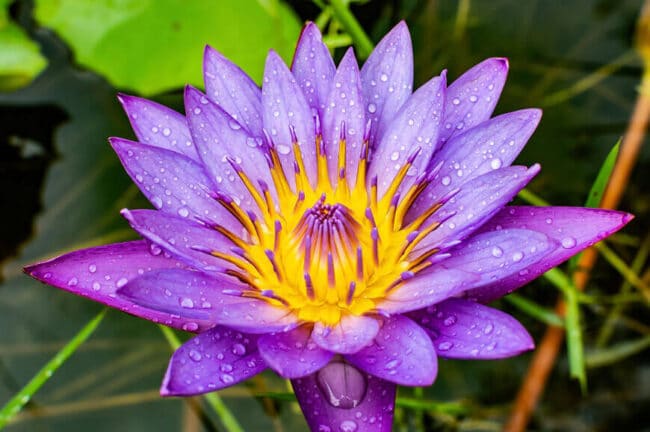
Does Blue Lotus Have Any Health Benefits?
Blue Lotus has been used for centuries in traditional herbal practices, but what does modern research say about its potential benefits? While Blue Lotus has a long history of use, scientific studies on its effects remain limited, and more research is needed to fully understand its properties.
What Compounds Are Found in Blue Lotus?
Blue Lotus contains several naturally occurring alkaloids, including:
- Nuciferine – A compound that has been studied for its potential effects on relaxation and mood balance.
- Aporphine – Traditionally associated with calming properties and has been explored in some research for its role in neurotransmitter activity.
- Flavonoids & Antioxidants – Like many plant-based botanicals, Blue Lotus contains flavonoids, which are natural compounds found in many herbs and flowers.
Traditional Uses vs. Modern Research
Historically, Blue Lotus has been used for relaxation, ceremonial practices, and meditation. Some ancient texts mention its use in aromatherapy, teas, and herbal infusions. However, modern scientific research on Blue Lotus is still in its early stages.
Since scientific studies are limited, it’s important to approach Blue Lotus as a botanical for personal exploration, rather than a substitute for any medical treatment.

How to Use Blue Lotus
Blue Lotus is a versatile botanical that can be used in multiple forms, making it a popular choice for those who enjoy herbal preparations. Whether you prefer brewing tea, using extracts, or incorporating it into aromatherapy, there are plenty of ways to explore Blue Lotus.
1. Brewing Blue Lotus Tea (Most Popular Method)
One of the most traditional ways to enjoy Blue Lotus is by brewing it into tea. Here’s a simple method:
Ingredients:
- 1-2 teaspoons of Blue Lotus Flowers or Blue Lotus Powder.
- 1 cup of hot water (not boiling, around 175°F or 80°C).
Instructions:
- Add Blue Lotus to a tea infuser or directly into a mug.
- Pour hot water over the flowers or powder.
- Let it steep for 5-10 minutes (longer for a stronger infusion).
- Strain (if using loose flowers or powder).
- Add honey, lemon, or other herbs for extra flavor.
2. Using Blue Lotus Extracts & Tinctures
For a more concentrated experience, some users prefer Blue Lotus 50:1 Extract. This highly potent extract can be:
- Added to teas or other beverages.
- Used in herbal tinctures for a stronger infusion.
3. Aromatherapy & Incense
Some users burn dried Blue Lotus flowers as incense or in essential oil diffusers for a soothing floral aroma.
The Future of Egyptian Blue Lotus
Given the psychoactive effects of blue lotus, the plant’s future remains uncertain. In recent years, legislators and various governments have taken punitive action against other similar botanicals, including kratom.
As of now, blue lotus’s under-researched and relatively unknown status suggest that the plant may continue to be accessible for most of the world’s consumers. However, the plant’s exact future is liable to change as researchers uncover more information regarding blue lotus’s properties and risks.
Order All-Natural Blue Lotus Online at Kratora
-
Sale!
Body and Mind
Blue Lotus 50:1 Extract
From $5.99 Shop Now This product has multiple variants. The options may be chosen on the product page -
Sale!
Body and Mind
Blue Lotus Flowers
From $8.99 Shop Now This product has multiple variants. The options may be chosen on the product page -
Sale!
Body and Mind
Blue Lotus Powder
From $8.99 Shop Now This product has multiple variants. The options may be chosen on the product page
Experience the rich history of the blue lotus plant with premium-grade Egyptian blue lotus products from Kratora. Explore our blue lotus flowers for sale and choose from our highly potent Blue Lotus 50:1 extract, unprocessed Blue Lotus Flowers, or our Blue Lotus Powder.
Regardless of your preferences, we take great care to ensure that our Blue Lotus products are always:
- Organic
- Freshly packaged
- Sourced from reliable growers
Frequently Questions About Blue Lotus
Many people are curious about Blue Lotus, its uses, and how it compares to other botanicals. Below, we answer some of the most frequently asked questions to provide clarity.
Is Blue Lotus Legal?
Yes, Blue Lotus is legal in most countries, including the United States. However, some regions may have restrictions on its sale or use, so it’s always a good idea to check local regulations before purchasing.
Is Blue Lotus the Same as Sacred Lotus?
No, Egyptian Blue Lotus (Nymphaea caerulea) is different from Sacred Lotus (Nelumbo nucifera). While both are aquatic plants, they have distinct botanical properties, uses, and historical significance.
Please note that none of the products sold on our website are intended to diagnose, treat, cure, or prevent any disease or medical condition.
Please note that the US FDA has not approved this product to be sold for human consumption, sold for external use only. None of the products sold on our website are intended to diagnose, treat, cure, or prevent any disease or medical condition.
Want to learn more about kratom quality and value? Start here:
Why Buying Cheap Kratom Can Be Dangerous
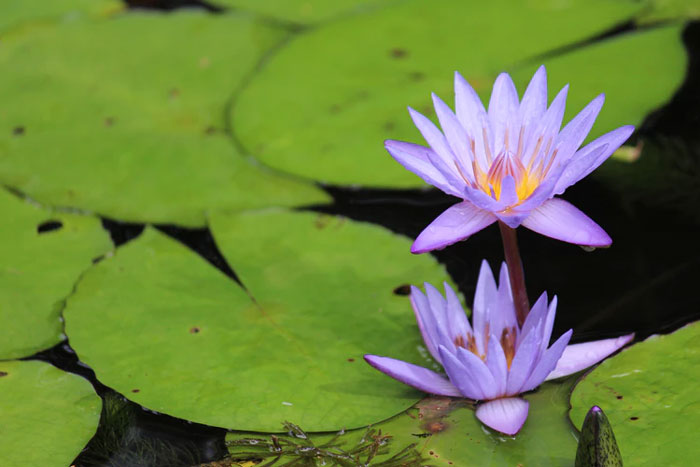

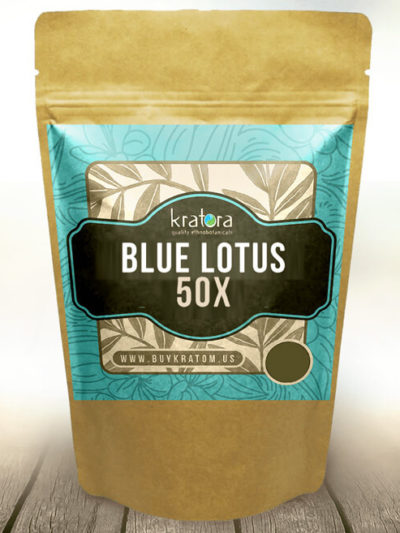
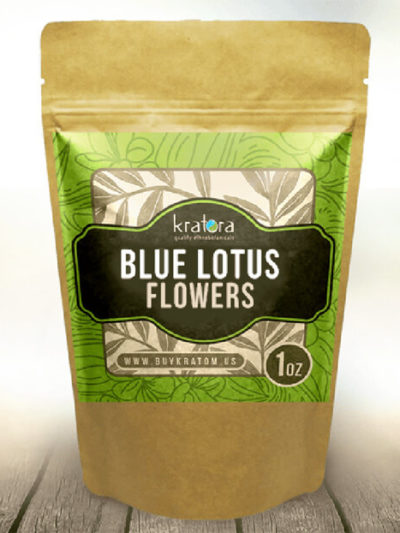
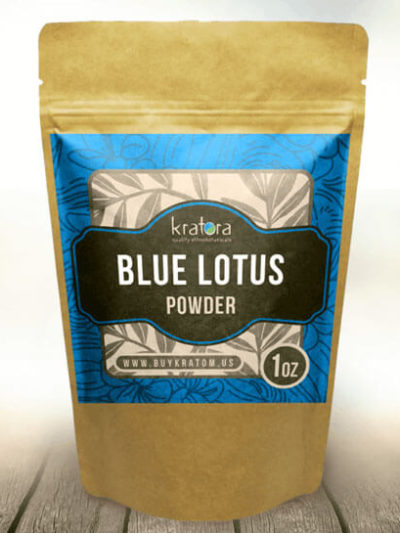

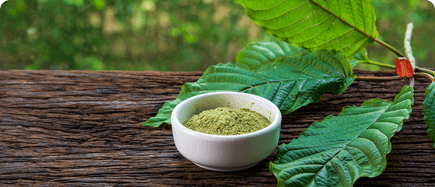
I have purchased Blue Lotus 50X and there are no
instruction on how much to use as a tea for example.
Please let me know if you have any dosing info.
Thank you,
HA Podlaha
Would love to sample blue lotus as I just placed an order . Thank you
Thank you for visiting Kratora. We will add the samples to your order 🙂
Would love to try a sample of your blue lotus
Hello Joseph, thank you for visiting our site. You can ask for 2 free samples of any products with any order you place at Kratora, no minimum purchase required 🙂